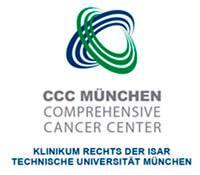Content
- Overview
- Background for liver fibrosis development
- Liver fibrosis and liver cirrhosis: what is the difference?
- Staging of liver fibrosis
- Symptoms
- Diagnostics
- Treatment
- Where to treat liver fibrosis?
- Prices for treatment
- Treatment of liver fibrosis with Booking Health
The result of almost any inflammatory process in the liver tissue is liver fibrosis – the process of replacing hepatocytes with connective tissue that leads to the development of liver failure and other severe liver diseases.
Overview
Liver fibrosis is not an independent disease. It accompanies chronic liver diseases and represents an intermediate stage between chronic hepatitis of any origin and liver cirrhosis. At the early stages, fibrosis is a reversible liver disease, but if the effects of provoking factors persist, liver fibrosis progresses into cirrhosis.
Background for liver fibrosis development
Several health conditions contribute to liver fibrosis or have this liver disease as the final stage of development. The most common causes and health conditions are:
- Fatty liver disease
- Alcoholic hepatitis
- Alcoholic liver disease
Alcoholic fatty liver disease, i.e. disease due to alcohol abuse, develops in many people. Fatty liver disease is diagnosed in 47% of drinkers (with about 60 g. alcohol consumption per day) and 95% of overweight people.
With the refusal from alcohol, the effects on the liver that are typical for fatty liver disease disappear within several weeks. With continuous alcohol intake, fatty liver disease, hepatitis and liver fibrosis leading to cirrhosis occur.
Alcoholic hepatitis often causes liver fibrosis. Alcoholic hepatitis is associated with the destruction of liver cells and the formation of liver fibrosis or cirrhosis. Patients experience weight loss, nausea, pain in the right hypochondrium, and jaundice. Complications of alcoholic hepatitis are bleeding from varicose veins, ascites, progressive weight loss, and bacterial peritonitis. The development of complications indicates a poor prognosis.
The advanced stage of alcoholic liver disease is cirrhosis, characterized by massive fibrosis of the organ. In such patients, the risk of developing liver cancer is increased. In most cases, the cause of death of patients with alcoholic liver disease is complications of liver cirrhosis that include ascites, encephalopathy, and bleeding from varicose veins.
Liver fibrosis and liver cirrhosis: what is the difference?
Liver fibrosis is a disease characterized by the proliferation of connective tissue in the liver without changing its structure. Scarring is a normal response of the body to injury, but with fibrosis, the tissue healing process is impaired and the liver ceases to function properly.
Liver cirrhosis is a severe chronic progressive disease when the healthy hepatic lobules are surrounded by the connective tissue. As a result, cirrhosis alters physiological nodal structure of the liver tissue. All this leads to a significant decrease in the functional activity of the liver.
Basically, liver cirrhosis is the complication of liver fibrosis. The formation of cirrhosis of the liver occurs over several years.
Liver cirrhosis differs from fibrosis, as the process is irreversible in cirrhosis. Unfortunately, treatment of liver cirrhosis is almost impossible. The function of the remaining hepatocytes (liver cells) can only be maintained. In the case of cirrhosis, only liver transplantation will help.
Compared to cirrhosis, liver fibrosis is more favorable. With liver fibrosis, the prognosis depends on the type and stage of the disease. Usually, fibrosis does not progress linearly with time. The most severe course and poor prognosis are with schistosomiasis. Mortality in fibrosis caused by schistosomiasis is about 8%. With congenital fibrosis, the prognosis is more favorable. In portal fibrosis without transformation into cirrhosis, the prognosis depends on the patient's age, gender, and the presence of immunodeficiency conditions.
Staging of liver fibrosis
The level of fibrosis progression in chronic liver diseases reflects the medical outcome and, therefore, the necessity and urgency of treatment.
Liver fibrosis has 5 stages, the most advanced of which is cirrhosis. With viral hepatitis, for example, progressing from stage to stage takes about 5 years on average.
The level of fibrosis development is based on the activity of the inflammatory process in the liver. Therefore, the progression of fibrosis differs markedly in different patients. Among the known factors affecting the rate of fibrosis progression, infections at an older age and alcohol abuse stand out. Fatty liver disease and diabetes mellitus can also facilitate the development of fibrosis.
Symptoms
As a rule, liver fibrosis isn’t causing any symptoms for a long time, and therefore a person does not seek medical attention. The onset of symptoms is possible only with severe fibrotic changes in the liver parenchyma.
Initially, a person may experience symptoms like increased fatigue, decreased performance, and general weakness. However, it should be noted that these symptoms are not specific to liver fibrosis, as they are also found in diseases of a different origin.
As the fibrosis progresses, symptoms of recurrent abdominal pain may appear, mainly in the right hypochondrium, which is aggravated by the consumption of fried and fatty foods, as well as by drinking alcohol.
Symptoms like bitterness in the mouth, heartburn, nausea, bloating, diarrhea or constipation, decreased appetite, in some cases up to complete refusal of food may also be present.
In some cases, a person complains of itching, which indicates the presence of biliary obstruction (biliary stasis). Symptoms like an increase in abdominal circumference indicate the development of ascites. Also, the development of hemorrhagic syndrome is noted, which leads to symptoms that include increased bleeding of the gums, nosebleeds, and uterine bleeding in women. The development of gastric or intestinal bleeding is not uncommon as well.
The symptoms like bruises on the body are also noted, arising under the influence of a mild trauma or even for no apparent reason.
Diagnostics
Blood tests for liver fibrosis are prescribed straight away because the results of blood tests are significantly related to the activity of the process.
With cirrhosis of the liver, blood tests reveal an increase in bilirubin, gamma globulins, and reduction of albumin and cholesterol. If the patient undergoes complex blood tests, for example, biochemical and clinical, then with active liver fibrosis they reveal anemia, leukopenia, and thrombocytopenia.
Another medical procedure for detecting fibrosis is a liver biopsy. Liver biopsy is a method in which a liver sample is harvested, which is followed by microscopic examination for determining the nature of the pathological process. A liver biopsy is carried out under the control of ultrasound.
A liver biopsy allows not only to detect damage to the liver tissue but also to determine the stage of the process, which greatly assists in the selection of specialized treatment. Different types of liver biopsy can be performed such as transvenous, laparoscopic, and incisional (during surgical intervention).
For making the fibrosis diagnosis, liver biopsy is needed most of the time. And if there are contraindications to the medical procedure, it is possible to establish a medical diagnosis based on the data of other examinations. In addition to the fact that liver biopsy is painful and carries the risk of bleeding and other complications, liver biopsy is a medical intervention that can be erroneous due to mistakes in tissue sampling and uneven liver damage by the process of fibrogenesis.
The alternative to liver biopsy is an ultrasound examination called elastography. Liver ultrasound elastography is a medical method of instrumental diagnostics that allows estimating liver stiffness. If according to the results of elastography liver is stiffer than normal, fibrosis or cirrhosis are diagnosed.
Treatment
The liver is known for its amazing ability to regenerate. Therefore, timely treatment of liver diseases is so important. Adequate therapy and quitting bad habits can stop the development of fibrosis and avert complications. Comprehensive treatment of liver fibrosis includes the elimination of the cause and complete alcohol refusal.
With viral hepatitis, the treatment of liver fibrosis is aimed at eliminating the cause of liver disease, i.e. the hepatitis itself. Antiviral therapy leads to reducing the degree of fibrosis when a stable response to the infections treatment is achieved.
Depending on what caused liver fibrosis, different drugs and treatment protocols are applied:
- For hepatitis C – interferon and ribavirin
- For hepatitis B – lamivudine, tenofovir, adefovir, interferon, and entecavir
- For hepatitis D – interferon-a
- For alcoholic hepatitis – alcohol refusal
- For fatty liver disease – treatment of the metabolic syndrome
Symptomatic treatment consists of the prescription of hepatoprotectors. Action of these drugs is aimed at preserving the structure of liver cells. However, it’s worth noting that their effectiveness is reduced if a person does not follow an appropriate diet and does not quit bad habits.
Carrying out preventive measures against infectious diseases, timely vaccination against hepatitis, influenza, and pneumonia are as important as following a balanced diet (sufficient amounts of fruits and vegetables, low-fat foods).
Where to treat liver fibrosis?
Consider the following hospitals for treatment of liver fibrosis:
- Charite University Hospital Berlin, Germany
- University Hospital Carl Gustav Carus Dresden, Germany
- University Hospital Rechts der Isar Munich, Germany
- University Hospital Jena, Germany
- University Hospital Tuebingen, Germany
You can find out which methods are used to treat liver fibrosis in the mentioned hospitals on the Booking Health website.
Prices for treatment
In the treatment of fibrosis in foreign hospitals, conservative methods are used, a competent combination of which allows restoring the damage of organ and sparing patients from complications caused by this liver disease.
Depending on the type of fibrosis, different methods can be used, which ultimately influences the price for treatment.
The cost of treatment with conservative therapy and diagnosis in Germany starts at 6,581 EUR. The cost of treatment with conservative therapy and diagnosis in India starts at 6,414 EUR. The cost of treatment with conservative therapy and diagnosis in Turkey starts at 3,127 EUR.
Treatment of liver fibrosis with Booking Health
Booking Health is one of the largest medical tourism companies in the world, which professionally helps patients from abroad to undergo the treatment of liver fibrosis in leading foreign hospitals.
The area of the company’s expertise is the organization of the arrival of foreign patients to the destination of choice and the necessary support throughout the treatment program.
You can count on Booking Health in resolving any arising issues during the treatment of liver fibrosis. You are welcome to check out the services the company provides on the Booking Health website.
If you want to start your treatment now, leave a request on the Booking Health website to get informed about how to proceed.
Authors:
This article was edited by medical experts, board-certified doctors Dr. Nadezhda Ivanisova, and Dr. Bohdan Mykhalniuk. For the treatment of the conditions referred to in the article, you must consult a doctor; the information in the article is not intended for self-medication!
Our editorial policy, which details our commitment to accuracy and transparency, is available here. Click this link to review our policies.















